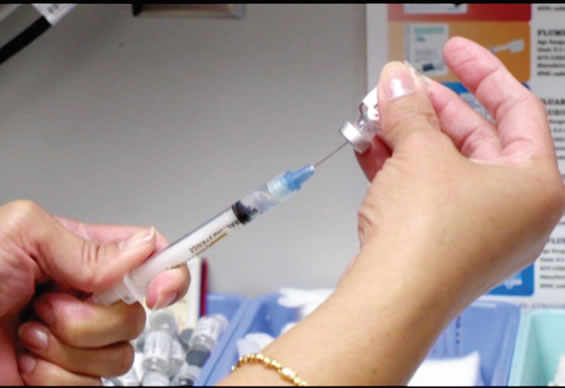Africa’s most populous nation, Nigeria, has launched a “revolutionary” vaccine against meningitis, which the World Health Organisation on Friday said was a world first.
“Meningitis is an old and deadly foe, but this new vaccine holds the potential to change the trajectory of the disease, preventing future outbreaks and saving many lives,” said WHO Director-General, Tedros Adhanom Ghebreyesus.
“Nigeria’s rollout brings us one step closer to our goal to eliminate meningitis by 2030,” he said.
The Men5CV vaccine shields against the five major strains of the meningococcal bacteria (A, C, W, Y and X) in a single shot.
The WHO said it offers broader protection than the current vaccine used in much of Africa, which is only effective against the A strain.
Last year, the number of meningitis cases jumped 50 per cent in Africa.
Nigeria, with a population of 220 million, is one of the continent’s 26 meningitis-hyperendemic countries, an area known as the African Meningitis Belt.
WHO noted that 153 people died during an outbreak of meningitis in Nigeria between October 1 and March 11.
the new campaign from March 25–28 to initially vaccinate more than one million people aged from one to 29 years.
“Northern Nigeria, particularly the states of Jigawa, Bauchi, and Yobe, were badly hit by the deadly outbreak of meningitis,” said Professor Muhammad Ali Pate of Nigeria’s Health Ministry.
“This vaccine provides health workers with a new tool to both stop this outbreak but also put the country on a path to elimination,” he said in the WHO statement.
Meningitis infection leads to inflammation of the membranes, or meninges, that protect the brain and spinal cord.
It has multiple causes, including viral, bacterial, fungal, and parasitic pathogens.
Symptoms often include headaches, fevers, and stiff necks. Bacterial meningitis is the most serious and may result in septicemia or blood poisoning that can seriously disable or kill within 24 hours.








